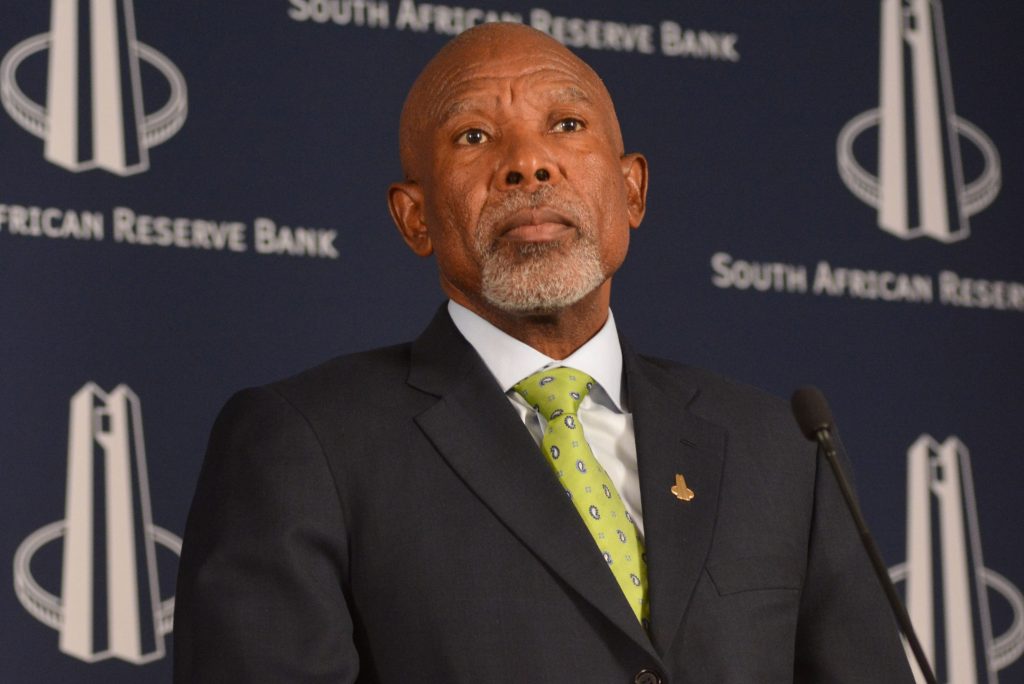You can also listen to this podcast on iono.fm here
JIMMY MOYAHA: Just recently, the AIDC (Alternative Information and Development Centre) made a call for the central bank governor [Lesetja Kganyago] to resign off the back of the latest interest rate announcement. Obviously, interest rates were hiked by 50 basis points or 0.5%. I’m joined on the line by Dick Forslund of the AIDC to look at this report. Dick, good afternoon, thank you so much for your time. That’s a very interesting statement to suggest that the central bank governor resign at this stage. What’s prompting that?
DICK FORSLUND: Well, what is prompting that is that the monetary policy committee and Governor Kganyago – they are acting indifferently to the situation in the country, the situation of mass unemployment, and they must know that this hike will increase unemployment even further.
You can’t have such people at the helm of the Reserve Bank. You have to have a much broader consideration.
I mean one can question what is the value of the independence of the Reserve Bank because they are obviously not independent of what the central bank, the Fed of the United States, is doing.
I think it was the Mail & Guardian that published a diagram stretching 20 years back and you can see there how the Reserve Bank’s repo rate is following, it’s tracking the central bank of the United States. The background to this is, of course, that you have a monetary policy regime or a financial regime in South Africa of as free capital flows as possible. So, when you have new people at the helm of the Reserve Bank, also the paradigm that the Reserve Bank is operating within – the paradigm of as free market flows as possible – that also has to be changed.
Read all our interest rate coverage here.
So it’s not enough to change people. I even quipped in another interview today that maybe you can replace it with a journalist. Moneyweb is always very much updated [on] what is happening internationally and you can simply have the decision-making power then that when the Fed is changing their interest rate, you just press a button and you change the interest rate of South Africa accordingly because that is what is happening now without any consideration to the economic situation in the country, and the situation for the majority, and so on. The most important thing here is unemployment, of course.
JIMMY MOYAHA: Is the resignation the right way to go though, and I ask this only because the problems that are currently plaguing South Africa, the corruption problems, the electricity problems, all of those sorts of problems are external of the central bank.
So the central bank’s mandate they are executing on is inflation targeting, and we can always get into whether or not right now, inflation targeting is what’s needed for the economy. But the question is would a resignation actually change this, or should we not be redirecting our focus to say that the government itself needs to do more so that the central bank doesn’t have to do what it’s doing now?
DICK FORSLUND: Well, many things have to be changed, of course. Governor Kganyago, he is correct in saying that the interest rate is not everything, but it is something, and you can damage the economy by being indifferent to the economic situation in the country.
So on the other hand, you can’t have what is called a progressive or pro-working class or whatever – more progressive policy in other respects taking care of the maintenance of the defaulting or cracking infrastructure, and so on.
You have to change the whole macroeconomic paradigm of course, but when you make a mark, and try to put down the foot, and influence public opinion in South Africa, you have to make a call for someone to resign.
If the monetary policy and Governor Kganyago step down, that would be a first step.
But, of course, the whole macroeconomic policy regime has to be changed and it also goes with what the government and the [National] Treasury is doing … they are taking more and more loans in foreign currency and sign agreements with the World Bank and the IMF about the economic policy, and that of course also has to be changed.
As you know, the more loans you have in foreign currency, the more vulnerable also you become to the value of the rand because you have to pay back such loans in dollars.
JIMMY MOYAHA: Perhaps the question that we should then be looking at is the current inflation targeting policy adequate considering our economic situation? But we’ll have to come back to that. Thanks so much, Dick Forslund, looking at the calls for the central bank governor to resign.

